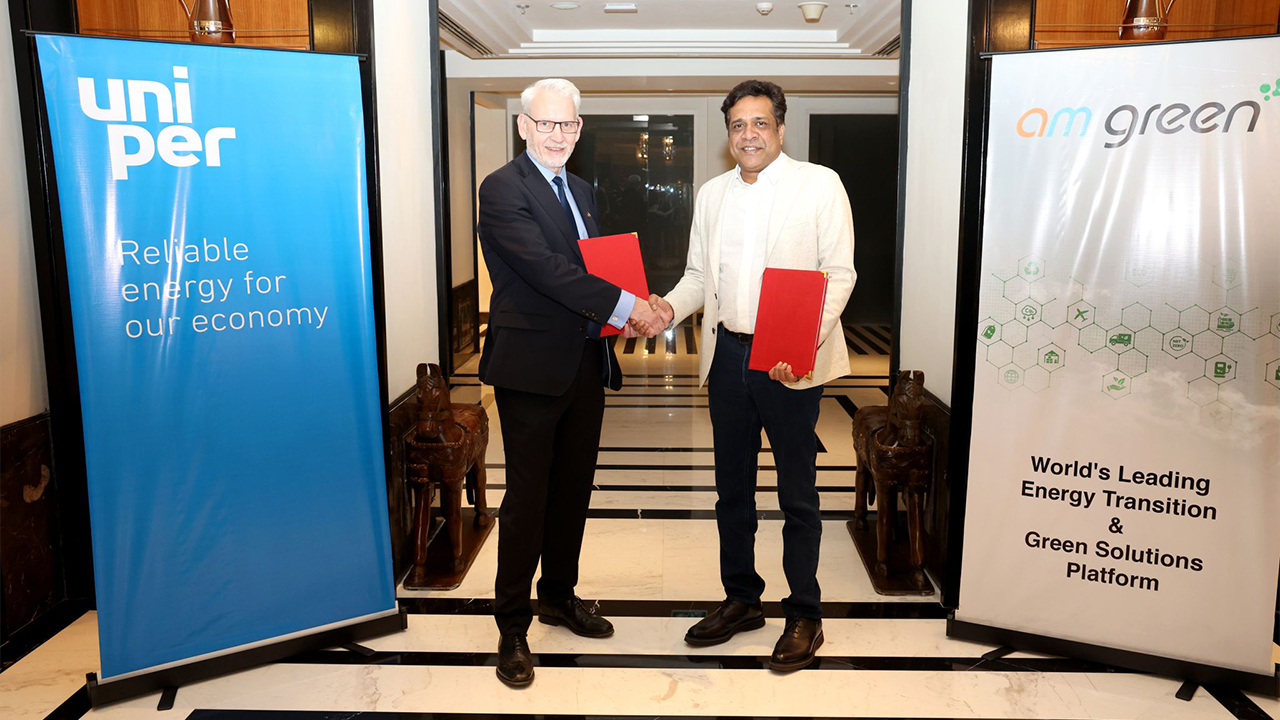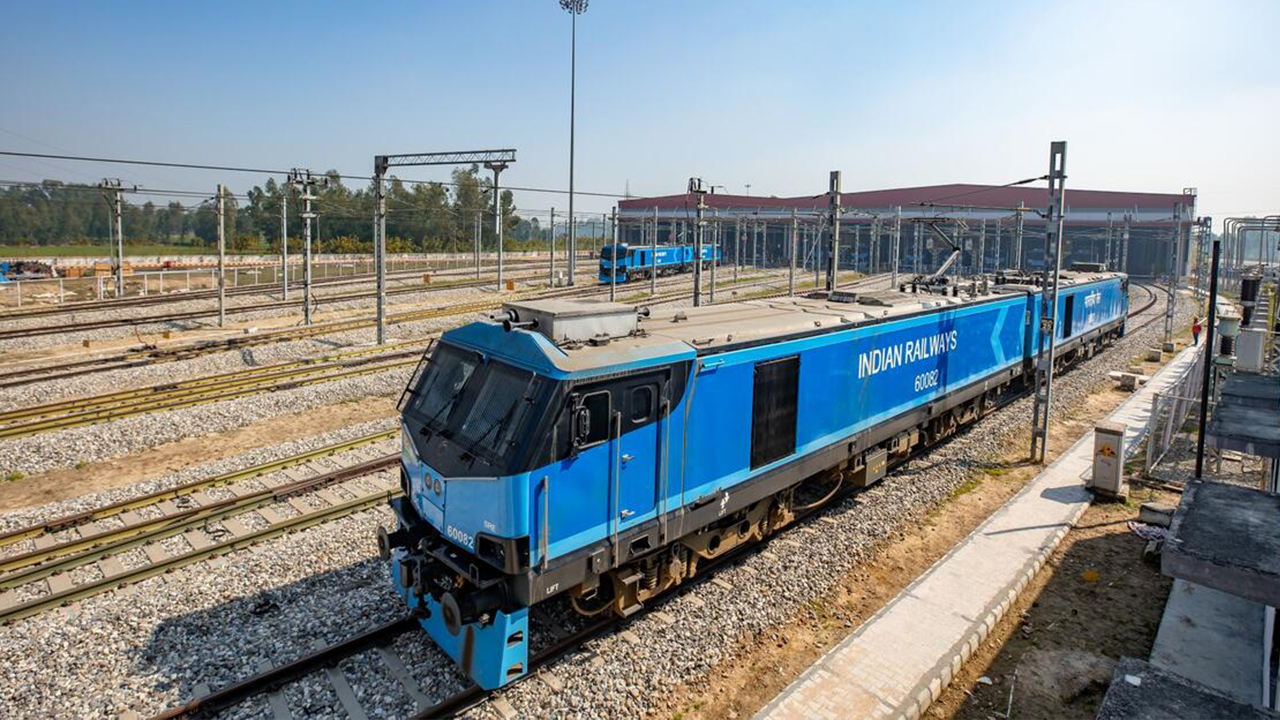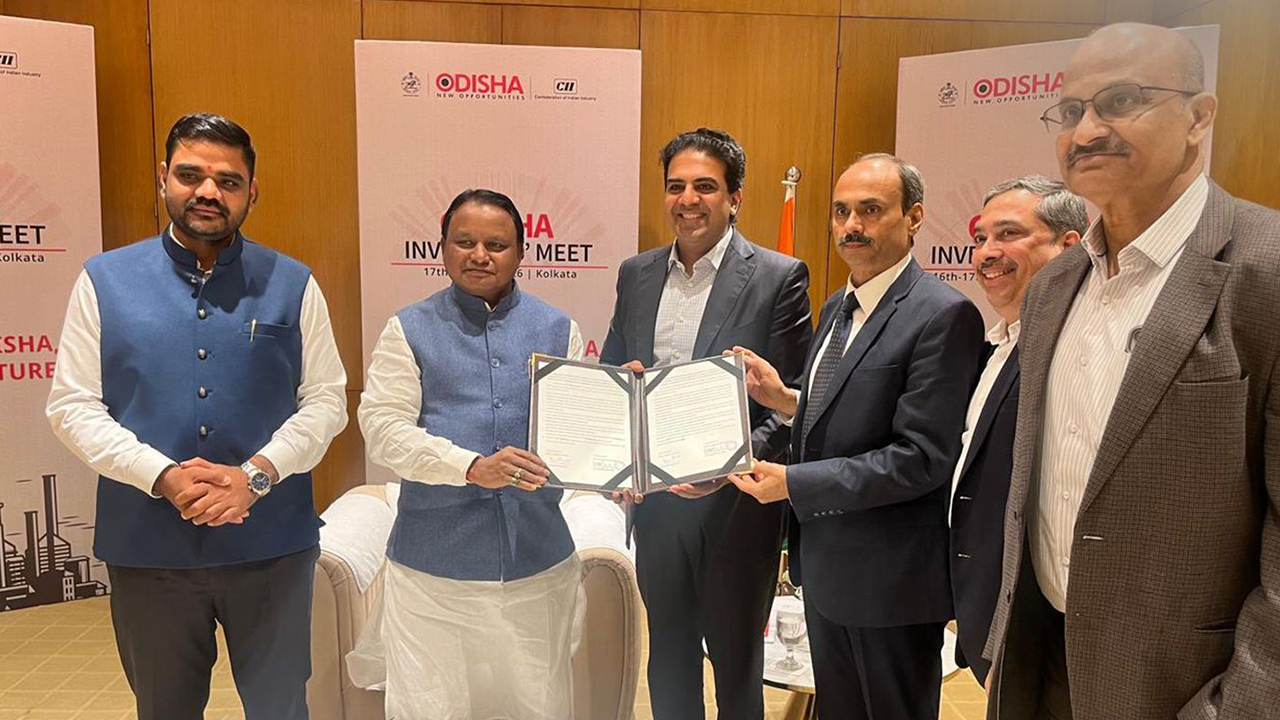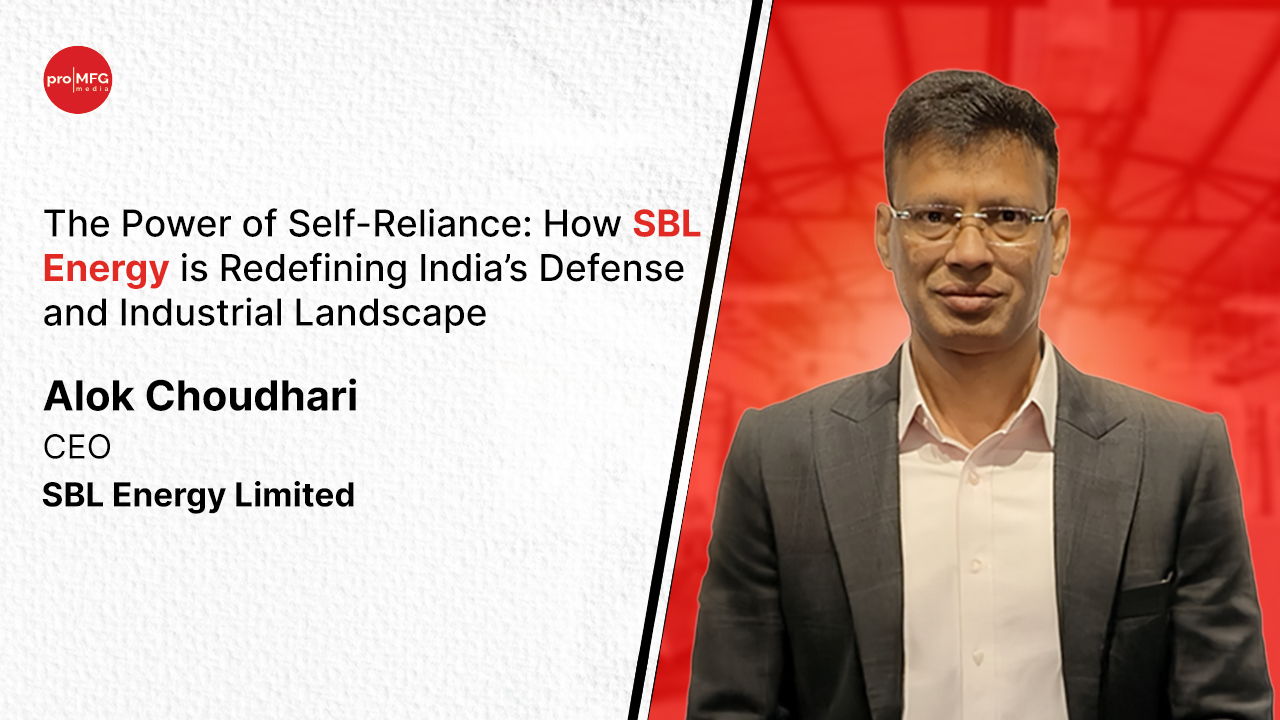As part of the Pro MFG Sustainable Circular Economy Series – Doing Well by Doing Good, powered by BiofuelCircle, Mr. Shardul Kshirsagar, Managing Director & CEO of Fowler Westrup (I) Pvt Ltd sheds light on the opportunities and challenges for AgriTech in India.
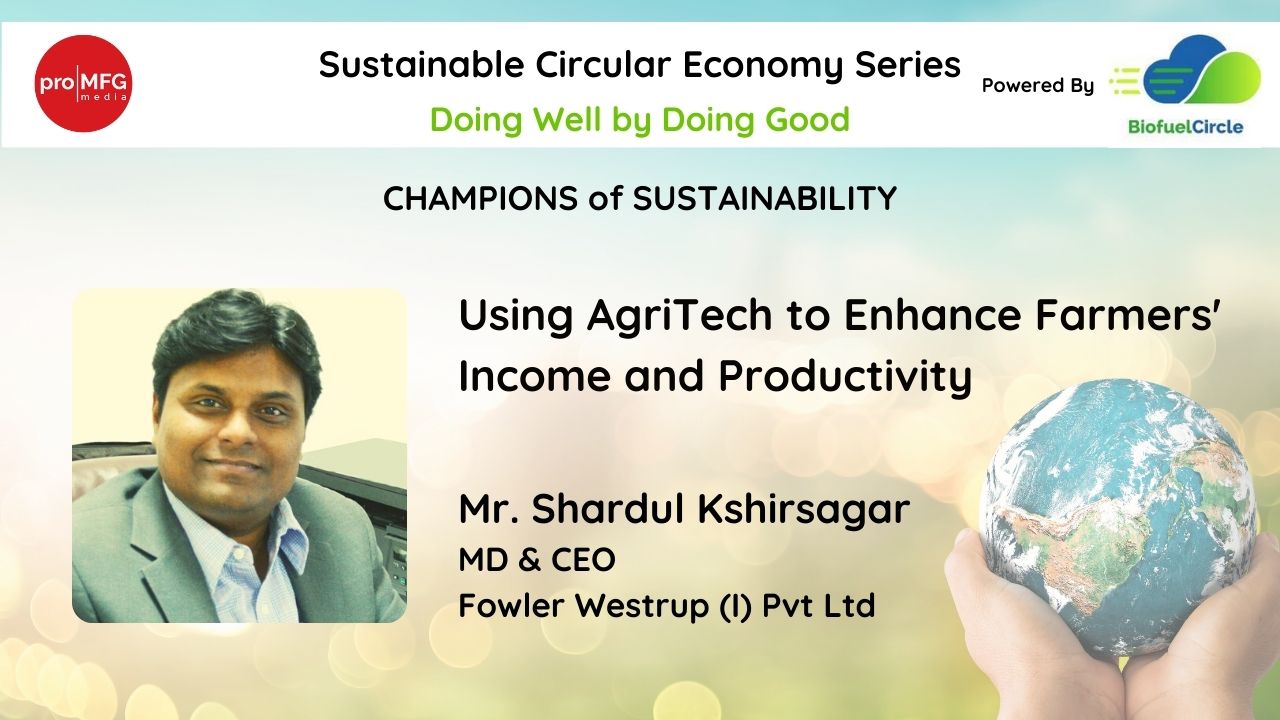
In a country with a major share of its population involved in agriculture and agro-based sectors, it is about time to bring about a shift in the way it functions. The good part is that the change has begun and technology experts across organizations are working on innovative technologies to improve the productivity, earnings and last but not the least, working conditions for Indian farmers.
Agricultural technology or AgriTech, being a relatively new term to have surfaced on the agriculture space, it has undoubtedly bestowed our farmers with new rays of hope in terms of quantity, quality and income avenues. From the use of improved technologies before and after harvesting to organizing farming communities, there's a lot to be done in terms of AgriTech solutions. However, connecting marginal farmers with the right, affordable technology solution providers continue to remain the real game changer.
The Basics of AgriTech for improved productivity
To begin with, value addition is one of the crucial ways to increase the earnings of farmers. With the use of right farming practices, farmers are able to ensure quality of their harvest. However, a lot depends on the use of quality of various farm inputs, weather and water availability. In any given situation, farmers can further add value after harvesting by processing the grains.
The post-harvest technologies which can be used at farmgate are pre-cleaning, fine-cleaning, grading, milling and galvanised storage.
The harvest produced by farmers can be precleaned with the help of precleaning and fine cleaning machines. Further, cleaned grains can be stored in galvanized silos for longer life. This helps the farmers to store their produce safely for a longer period and avoid distress selling.
Subsequently, time to market can be managed by farmers so as to realize better prices for their produce. Cleaned grains help in ensuring maintenance of quality of grains while it is stored in silos. Galvanized silos technology helps in vertical storage of grains with mechanized handling. This technology reduces wastage of grains at 10% against that of storage in gunny bags in warehouses.
Farmers can also use the technology of gravity tables so as to carry out grading of grains, seeds etc which can help in realising differentiated prices in the market for various grades of grains. Milling technology is another choice which can be deployed as per the type of grain harvested by farmers so as to convert raw grain into consumable food products.
Thus, at farmgate, various value additions can be carried out by farmers through the use of cleaning, grading, milling and storage technologies, including transportation of grains so as to improve productivity and increase their income.
Key Opportunities and Challenges for FPOs
FPOs are one of the methods of getting primary producers organized with legal identity which provides for sharing of benefits/ profits among members. Around 85% of farm holdings in India are with small or marginal farmers. Thus, being unorganized, these farmers are unable to realize good value for their produce. Hence, it is imperative for the majority of Indian farmers to get organized.
FPOs enable marginal farmers to get organized & realise benefits of economy of scale in purchase of farm inputs, processing of farm produce & marketing of the produce. FPOs also help member farmers to get adequate access to credit & market linkage. Hence FPO is a great opportunity & this ecosystem will be win-win for all stakeholders e.g. farmers, end consumers, Industry participants, Financial institutions etc.
At Fowler Westrup, we have worked with FPOs in states like Tamil Nadu, Karnataka & Chhattisgarh. We have provided a total processing solution to FPO for their grain & seed processing needs. We are satisfied with the way we see member farmers of FPOs getting benefited with value addition due to use of processing technologies which ultimately results into financial benefits at the producer level. However, the various challenges faced in pursuit of this are:
• Lack of information & knowledge with participating members regarding FPOs.
• Budget & Ease of availability of financial credit at various stages
• Risk management
• Infrastructure availability & Agri logistics
• Land & related other social issues, local culture
• Knowledge about right processing technologies, advisory services to ensure Quality
• Gaps in enabling Policy framework
In order to have sustainable success & mass multiplication of FPOs, above challenges need to be addressed through right policy intervention. Government institutions like the National Bank for Agricultural and Rural Development (NABARD) is acting on it. National Agriculture Infrastructure Fund & New Farm laws are steps in the right direction.
Revolutionizing the AgriTech industry practices through Data & Analysis
India has the second largest agricultural land (approx 160 Mn Ha) in the world. Hence, it offers a very good opportunity for our country to become a global food exporter. However, we need to improve our quality and competitiveness in agriculture. Precision farming is one of the solutions to improve yield & productivity in agriculture in order to get world class quality & cost competitiveness.
AgriTech will be playing a vital role in precision farming. It can be deployed in various stages of the agricultural value chain. At the Farm Input level, drones can be effectively used for spraying nutrients, fertilisers, pesticides. Also, with the use of aerial imaging technology, drones can be used for data collection in terms of plant count, area of plot, plant height, weed detection, etc.
Machine learning modelling will help convert this data into actionable insights in order to manage various stages of growth of crops in a better way. The use of AgriTech helps farmers to optimise the use of water, fertiliser and other inputs including manpower so as to economise its cost to the tune of 20 to 25%.
The use of drones helps in improving efficiency of field work and triggers timely action based on data analytics with the use of software & field sensors to measure soil parameters, wind velocity, humidity etc. The complete cycle of crop growth can be managed effectively by monitoring the progress of crop growth on a real time basis, including timely actions based on data analytics. Technology can also enable crop damage assessment, if any and this can be effectively used by insurance companies for settlement of claims and risk management.
At Fowler Westrup, we are working on building suitable solutions for farmers through our strategic investment into drones and allied technologies in order to make them affordable to marginal farmers and provide on a service basis “Pay as per use” model.
In fact, the new generation of farmers are progressive in nature and open to adopting AgriTech solutions in their farming practices as it offers clear benefits to them in terms of improved predictable outcome, increase in productivity while reducing wastages.
About Shardul Kshirsagar
Shardul Kshirsagar is the Managing Director & CEO of Fowler Westrup (I) Pvt Ltd and also a board member at Westrup A/S, Denmark. A Mechanical Engineer from Govt. College of Engineering, Pune, he leads the global engineering business of the group with responsibility for running an enterprise to meet stated goals of the organization along with its team.
Shardul is a senior management professional & a certified Independent Director with global business management experience. In his career spanning more than two decades, he has experience in building performing teams and strategy road map with its implementation to grow the business profitably or turn it around including board level interface & governance.
Shardul completed his MBA from S P Jain Institute of Management & Research, Mumbai. In the past, Shardul has held leadership / Board positions with global entities such as VAG Valves, Thermax Ltd & its subsidiary company, Rifox GmbH. He has experience working in multicultural environments, serving various industry segments in Indian as well as international markets of SEA, ASEAN, Middle East, USA, Japan & Russia.
Shardul also stands for gender equality & inclusiveness and cares for safety, education, health, equal opportunity & sustainability.
NEWSLETTER
TRENDING ON PRO MFG
MORE FROM THE SECTION




